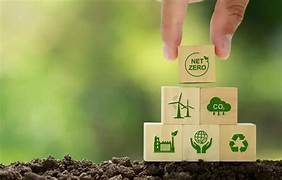Embracing the Circular Economy: A Path to Sustainable Prosperity
August 25, 2023 2023-08-25 10:49
Embracing the Circular Economy: A Path to Sustainable Prosperity
In the realm of sustainable development, a revolutionary concept known as the circular economy has emerged as a beacon of hope and innovation. In stark contrast to the linear “take, make, dispose” model, the circular economy offers a fresh perspective—one that not only reduces environmental impact but also fosters economic growth and societal well-being. As we dive into the intricate web of circularity, we uncover the astounding potential of this paradigm shift and explore actionable steps that universities and individuals can take to contribute to its realization.
Decoding the Circular Economy: A Paradigm Reimagined
At its essence, the circular economy redefines how we perceive resources and waste. Instead of a linear process that culminates in the landfill, the circular economy emphasizes the continuous circulation of resources through various loops: from production to consumption, recycling, and reintroduction into the value chain. This approach minimizes waste, conserves resources, and cultivates a self-sustaining system that thrives on innovation and regeneration.
The Power of Circularity for Universities
- Curriculum Innovation: Universities play a pivotal role in shaping future leaders and decision-makers. Integrating circular economy principles into curricula across disciplines—from engineering and design to business and economics—equips students with a holistic understanding of sustainability challenges and solutions.
- Research and Development: Universities are epicenters of research and innovation. By conducting research on circular business models, waste reduction technologies, and sustainable materials, academic institutions contribute directly to the advancement of circular economy practices.
- Collaborative Initiatives: Partnerships between universities, industries, and governments foster a collaborative ecosystem that drives circular economy innovation. Joint projects, knowledge exchange, and interdisciplinary dialogue amplify the impact of circular initiatives.
Individual Actions in a Circular World
- Embrace Conscious Consumption: Opt for products with longer lifespans, repairability, and recyclability. Make informed choices that align with circular principles, favoring quality over quantity.
- Reduce, Reuse, Recycle: Minimize waste by reducing consumption, reusing items when possible, and participating actively in recycling programs. Familiarize yourself with local recycling guidelines.
- Support Sustainable Brands: Patronize businesses that prioritize circular practices, such as offering take-back programs, using recycled materials, and embracing renewable energy sources.
Innovation at the Core of Circular Success
In the transition to a circular economy, innovation becomes a driving force. From repurposing waste streams into valuable resources to designing products with end-of-life considerations, innovation is the catalyst that fuels the circular economy’s potential. Universities, with their dynamic research environments and diverse expertise, stand at the forefront of this transformative journey.
The Call to Action: Forging a Circular Future
The journey toward a circular economy is not a solitary endeavor; it’s a collective voyage that requires commitment, innovation, and unified action. Universities, as knowledge hubs and influencers of the future, wield immense power to catalyze this change. By integrating circularity into education, research, and collaboration, universities inspire a generation of thought leaders equipped to drive the transition to a sustainable and prosperous circular economy.
As the circular economy narrative unfolds, we stand at a pivotal juncture—a crossroads where traditional practices meet transformative possibilities. In embracing the circular economy, universities and individuals alike embark on a journey of innovation, conservation, and prosperity—a journey that holds the promise of a future where the cycle of sustainability takes center stage, ushering in an era of responsible consumption and regenerative abundance.
Related Posts
Embracing the Circular Economy: A Path to Sustainable Prosperity
August 25, 2023 2023-08-25 10:49Popular Tags





























